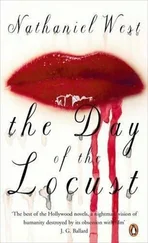With time Françoise allowed the range of our conversation to broaden. She sat before me and fingered her teacup. Now her face was somehow less dynamic and a far greater mystery than it had been those years earlier. One depends so much on the subtle movements of another’s eyes to perceive her thoughts — the face is so much more than simply the façade of a building.
Françoise’s thoughts were now entirely her own. What her mouth didn’t say, her eyes couldn’t reveal.
What Françoise would say was only that she was interested in current events. She allowed me to tell her what had transpired in the Pacific theater, what was in the papers, in the political decisions which followed from the treaties at Yalta and a conference at Potsdam, in the austere postwar days of rationing and bedsit living in London. Within a year I was working three days a week as a flight instructor for British European Airways, as it was then known. Wednesdays were not a possibility, and as an RAF veteran, I was given no trouble with this request. I first set out as well on attaining an A.B., for which I was able to apply some of the courses at Leathersellers College early in the war. Much later, in the evenings after work, I was able to attain an M. Phil. I went on to a program for a Ph.D. in English literature, with a specialty in Elizabethan drama, and completed the course work and began a dissertation on Shakespeare. With the focus I’ve given to writing this memoir — and then to teaching, and to life — to this day I’ve not completed it. I still hope one day I will.
During this same period Richmond began to call me with ever greater frequency and, its being in the direction of RAF Northolt, was a natural way station on my daily commute. For a period a lull in training at British European Airways allowed for Fridays off as well.
On those days the bench outside Françoise’s window beckoned. I sat and waited for her to open her curtains. There were blackout curtains installed during the Blitz. William left their flat at nine in the morning, and at ten Françoise stood at her second-story window — not looking out, of course, for she couldn’t see, but standing with the sun on her face. She had changed so acutely since those days in Rotterdam. The deep scars around her eyes seemed to shift the whole manner of her person. She had now a slick burn mark across her brown left cheek. Her front teeth no longer had their gap — they’d been replaced.
I wondered how extensive the damage to her body was. Her hair was still so long and dark, her frame so full. Her nose was still flat, the most prominent feature on her face, and it still bore those brown islets her eyes had lost.
For five minutes, maybe ten, Françoise would stand by that window. At some point she would recede back into her room. I don’t know what my purpose was during those days, only that being granted a view again of Françoise, what I’d wanted for so long, I had no interest in leaving. It wasn’t clear to me what my love for her was now. I knew only that Park Sheen was the sole venue where I might discover what it had become. I would sit on the bench and read plays and sonnets, and often when my eyes grew tired, I’d move to the center of the courtyard to deadhead the gardenias, pull off hollyhock blooms that were beginning to suffer from rust, so the whole plant would not be infected.
Sometimes the tremolo and woof of a mandolin would arise from Françoise’s window. Her muscles had not forgotten how to make chords, how to pick that instrument. I would sit very still, and in not moving, I could hear her voice. It was much quieter now, but it still carried that warble I remembered from her days performing with the Tennessee Sisters. I listened as she sang Bill Monroe’s “What Would You Give in Exchange for Your Soul?” If it occurred to me then that I might be cuckolding this William Rutherford as my mother’s painter had once done my father, it had not stopped me.
One day while I was in the midst of my deadheading in Françoise’s garden, an old man approached and inquired after my interest in those flowers.
“I have a certain fascination with making things grow,” I told him. He suggested that he could provide a small fee for my looking after those plants.
Soon, on the Fridays when British European Airways wasn’t in need, I would go to Park Sheen and, in khaki pants and knee pads, with a spade and a shovel, some fish emulsion procured from the receptacles out back of the local seafood market, and some gloves, I would look after those flowers. At lunch it was the bench and Mrs. Goldring’s old copy of Shakespeare, and awaiting Françoise’s drawing back her curtains so I might listen to her singing; after she’d let them fall again, I would read a single act of one of the plays, or half a dozen sonnets, and then return to gardening. Some days, William Rutherford even waddled in his Falstaffian way past, but he never acknowledged me.
The gardener is an unseen force. The better he is at his job — the better he is at making things grow and making it appear as if they’ve grown on their own — the less he is seen. He is wholly unlike the bomber, whose nacelles cried out for miles across the German countryside, and in whose wake lay only irrevocable destruction.
2.
I’d like to pause for a moment before this life history draws to its natural conclusion, to say a thing or two about my life after returning to find Françoise in London, which needn’t be mysterious any longer. She and I did not reconcile. We did not marry. She stayed with William Rutherford, and I had no choice but to leave.
I believe to this day that Françoise and I were very much in love, that I never stopped loving her even after I was forced to abandon any dream of a life with her again, maybe even after I married, even after I left London for good for a life in the United States. But there are some events in our lives that do change irrevocably who we can be, what we can be. The damage I’d done in leaving Françoise, the years we’d had apart sitting on those indiscretions, had caused too great a chasm. It took some time for me to comprehend that, but in time I did. I don’t know to this day if Françoise loved William Rutherford. I do know now that it was her life and she would live it. It was not mine.
Once or twice in the years since that initial postwar period, I’ve gotten my horns locked with older survivors of that war and its attendant atrocities, survivors with whom I’ve joined groups in the interest of solidarity, those middle-aged men like myself who in the forties experienced things they can’t really bring themselves to speak of. They, like me, might have a manuscript locked away in a closet somewhere, reams running through a typewriter, pages they’re likely to show only to their family — or pages they have no interest in showing anyone, which they’ll then share only with the utmost reticence. Those memories are far from mind most days, and yet the scratch of their talon leaves its unalterable mark on the skin of daily life.
We are sometimes willing to talk about those times. Generally we simply play bridge or discuss some history we’re reading, but at times someone will begin to tell a story and find himself unable to stop until he’s finished. Once or twice, on a bad year, I’ll provide a truncated version of my loss in exchange. They’ll hear some expurgated version of my story, hear that I flew a Lancaster bomber. Usually they’ll say, “What I’ve heard described — firebombing over Germany — you say it was a total destruction by fire. How do you handle it? Thinking of it? Speaking of it?”
I understand their implication. We all live with what we live with. What you know, you know.
There were decades ahead for me after I returned to London. Freed from trying to find Françoise, I traveled to Leitmeritz to see the remains of Brüder Weisberg. It had fallen badly into disrepair. Seeing it so made me somehow happy. I traveled to Vienna. In the Österreichische Galerie Belvedere, I saw a portrait of my mother as a young girl hanging alongside the most famous Schieles and Klimts. Some people fought to get paintings like this one back. I liked that it hung where anyone could see it.
Читать дальше












